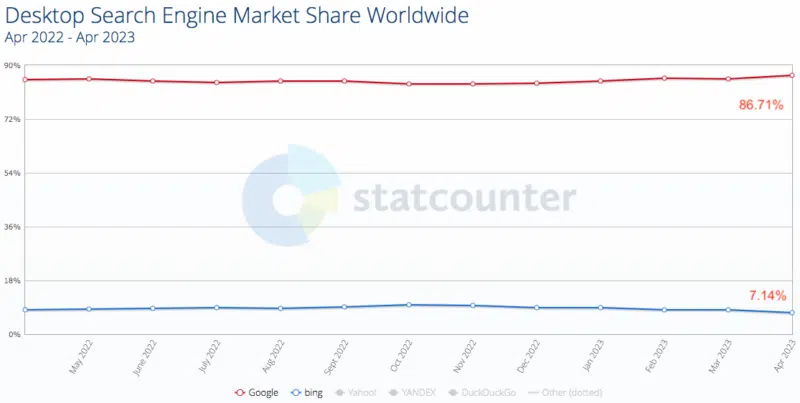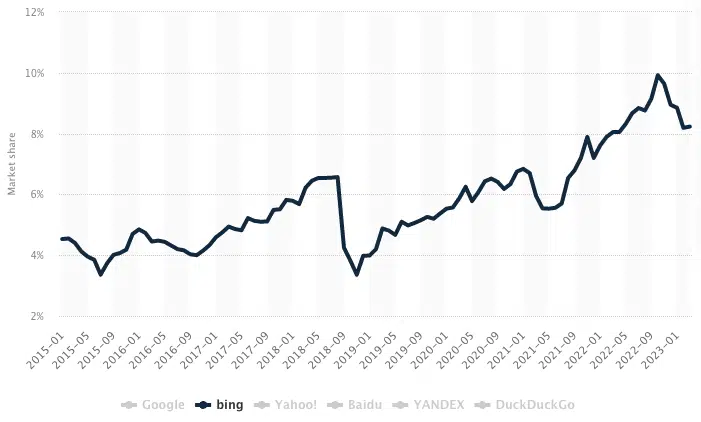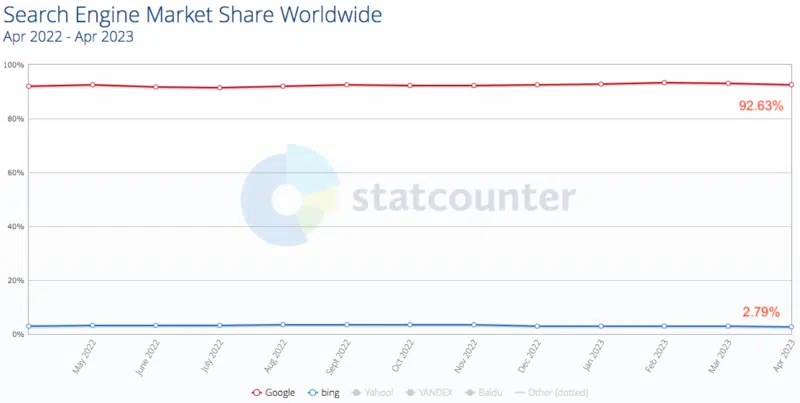These 2 charts show Microsoft Bing’s search market share problem
If Microsoft was hoping the new Bing would steal search market share from Google, well, the opposite seems to have happened.
Despite having gotten the jump on Google when it launched the new Bing, featuring its own generative search experience fueled by GPT-4, data shows Microsoft has failed to gain market share.
In fact, if the latest numbers from StatCounter are directionally accurate, it appears Bing is actually losing market share to Google.
Why we care. It would be nice to live in a world where we didn’t have to rely so heavily on Google. It was encouraging to see Bing making some small gains. But we later learned the New Bing attracted new Edge users who then used Google Search. And now that Google has unveiled its Search Generative Experience, Bing has lost its first-mover advantage and it seems we won’t see a true search competitor anytime soon.
7.14%. That’s Microsoft Bing’s worldwide desktop market share as of April, according to Statcounter. The new Bing launched in February.

- Why this number is a problem: Bing’s market share peaked in October 2022, at 9.92%. And the 7.14% figure is actually lower than April 2022 (8.05%).
Meanwhile, Google’s desktop search market share is 86.71%.
Also if you take the longer view, via Statista, you can see that it has taken Bing 8+ years to increase its desktop market share from 4.53% to 7.14%.

If GPT-powered search – and all the hype that came along with it – didn’t give Microsoft Bing a momentum bump, that to me is telling.
2.79%. The picture gets even bleaker for Microsoft Bing when you look at search engine market share worldwide, across all devices (desktop, mobile, tablet), also via Statcounter. While Bing is at just 2.79%, Google is at 92.63%.

- Why this number is a problem: Bing’s market share peaked in October 2022, at 3.59%. And the 2.79% figure is actually lower than April 2022 (3.02%).
Google isn’t vying with Microsoft Bing. News headlines discussing the AI search competition between Google and Bing tend to focus on the rivalry element instead of simply admitting the reality. Which is that these two charts show Microsoft’s problem: even with all the hype around the new Bing and all the investments Microsoft has made in search – the company still isn’t making meaningful gains on Google.
Granted, search market size isn’t everything. Microsoft’s advertising and search revenue increased 3.4% to just over $3 billion in its most recent earnings report. So Microsoft Bing continues to be a large enough platform that you should pay attention to.
But the search “war” between Google and Microsoft? It’s over. Google won long ago.
Related stories
New on Search Engine Land